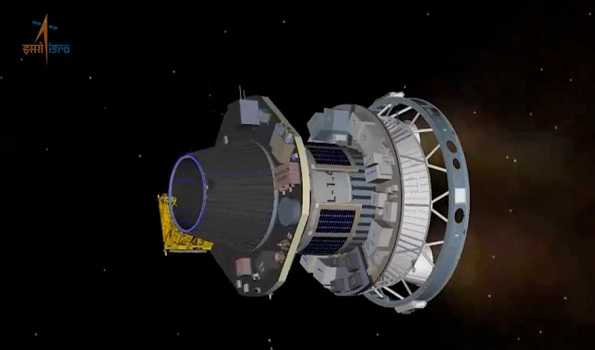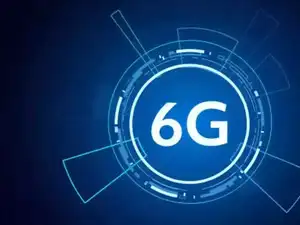Blog Credit: Trupti Thakur
Image Courtesy: Google
POEM-3 : PSLV Orbital Experimental Module-3
The Indian Space Research Organisation (ISRO) has achieved another milestone with the successful re-entry of the PSLV Orbital Experimental Module-3 (POEM-3) into the Earth’s atmosphere, leaving no debris in orbit.
The PSLV-C58/XPoSat mission, which took place on January 1, 2024, has demonstrated ISRO’s commitment to responsible space operations and debris mitigation.PSLV Orbital Experiment Platform (POEM) also known as PSLV Stage 4 Orbital Platform (PS4-OP) is an orbital micro-gravity test bed based on the spent fourth stage of PSLV. By adding modular subsystems for power generation, communication, and stabilization like photovoltaic cells, Telemetry and Telecommand (TT&C) package, attitude control system, data storage, etc to the PSLV fourth stage, it can function as a satellite bus. This augmented stage can then host payloads for up to six months while in orbit, making it useful for qualifying components, gaining space heritage, and conducting experiments in microgravity conditions. Usually, the fourth stage of PSLV is discarded after deployment of the satellite and remains in orbit for a significant duration in a passive state as a piece of space debris.
POEM-3 Mission Objectives and Payloads
POEM-3 was equipped with nine different experimental payloads to conduct technology demonstrations and scientific experiments on newly developed indigenous systems. Six of these payloads were delivered by Non-Government Entities (NGEs) through IN-SPACe. The mission objectives of these payloads were successfully met within a month of the launch.
Deorbiting and Re-entry Process
Following the successful placement of all satellites into their designated orbits, the final stage of the PSLV was converted into a 3-axis stabilized platform known as POEM-3. The stage was then deorbited from an altitude of 650 km to 350 km, facilitating an expedited re-entry process. Measures were also taken to passivate the stage, including the removal of residual propellants, to reduce the potential risks associated with accidental break-ups.
Impact Location and Tracking
The orbital altitude of the upper stage continued to decay under the influence of natural forces, primarily atmospheric drag. POEM-3 was expected to have impacted the North Pacific Ocean on March 21, 2024. Until near re-entry, POEM-3 was tracked by ISTRAC ground stations, and the Multi-Object Tracking Radar (MOTR) at Shriharikota also tracked the PS4 stage until the morning of March 21.
Opportunities for Academia, Startups, and NGEs
Through the POEM platform, which serves as a cost-effective option for conducting short-duration space-borne experiments, ISRO has opened up new opportunities for academia, startups, and NGEs to experiment with their new payloads.
This opportunity has been effectively utilized by numerous organizations for carrying out experiments in space, including electric thrusters, satellite dispensers, and star-tracking.Responsible Space Operations
With the emergence of numerous small satellite constellations, the agency recognizes the substantial risk space debris poses to space operations, including satellite launches, human spaceflight endeavors, and exploration missions.
As a responsible space agency, ISRO has pledged to tackle this challenge by advancing debris tracking systems, developing technologies for space object deorbiting, and promoting responsible practices for satellite deployment.Important Facts for Exams
- The Vikram Sarabhai Space Centre (VSSC) has taken the lead in conceptualizing and realizing the POEM by augmenting the 4th stage of PSLV.
- PSLV-C58/XPoSat is the third such mission in the series, with POEMs being successfully scripted each time.
- The payload operations were carried out effectively by the spacecraft operations team from the mission operations complex (MOX) at ISTRAC.
- ISRO’s System for Safe and Sustainable Spacecraft Operations Management (IS4OM) has been monitoring and analyzing the orbital decay throughout the mission.
- POEM-3 was also supported by other ISRO centers, including URSC, LPSC, and IISU.
MORE ABOUT POEM-3
On PSLV-C58/XPoSat campaign, POEM-3 hosted ten payloads weighing ~145 kg cumulatively. PSLV fourth stage was lowered to 350 km orbit at 9.6° inclination after deploying XPoSat to reach the POEM-3 operational orbit. POEM-3 will nominally be operational for a period of one month. For power generation and storage it will again have flexible solar panels in conjunction with 50Ah Li-Ion battery and will be three-axis stabilized. Payloads hosted on POEM-3 (COSPAR ID:2024-001A, SATCAT no.:58694) are following, seven of them facilitated by IN-SPACe and three are by ISRO,
- Radiation Shielding Experimental Module (RSEM): Experimental payload by TakeMe2Space to evaluate effectiveness of Tantalum coating for radiation shielding.
- Women Engineered Satellite (WESAT): Payload by LBS Institute of Technology for Women to compare and measure UV radiation in space and on Earth’s surface in real-time.
- BeliefSat-0: Amateur Band UHF to VHF FM voice repeater, and VHF APRS Digipeater satellite by K. J. Somaiya Institute of Technology.
- Green Impulse TrAnsmitter (GITA): Green bipropellant CubeSat propulsion unit by Inspecity Space Labs Pvt. Ltd.
- Launching Expeditions for Aspiring Technologies-Technology Demonstrator (LEAP-TD): P-30 nanosatellite platform subsystems validation by Dhruva Space.
- RUDRA 0.3 HPGP: Green Monopropellant Thruster by Bellatrix Aerospace Pvt. Ltd.
- ARKA200: Xenon based Hall-effect thruster (HET) by Bellatrix Aerospace.
- Dust Experiment (DEX): Interplanetary dust count measurement by Physical Research Laboratory.
- Fuel cell Power System (FCPS): Demonstration of 100 watt fuel cell power system by VSSC.
- Si based High Energy cell: Demonstration of Silicon based High Energy cells by VSSC.
Blog By: Trupti Thakur

28
MarPOEM-3
Mar 28, 2024Recent Blog
AI HallucinationsMay 16, 2025
India’s Steps Into 6GMay 15, 2025
The New Accessibility Feature of AppleMay 14, 2025
The Digital Threat Report 2024May 13, 2025
The MADMAX ExperimentMay 12, 2025




